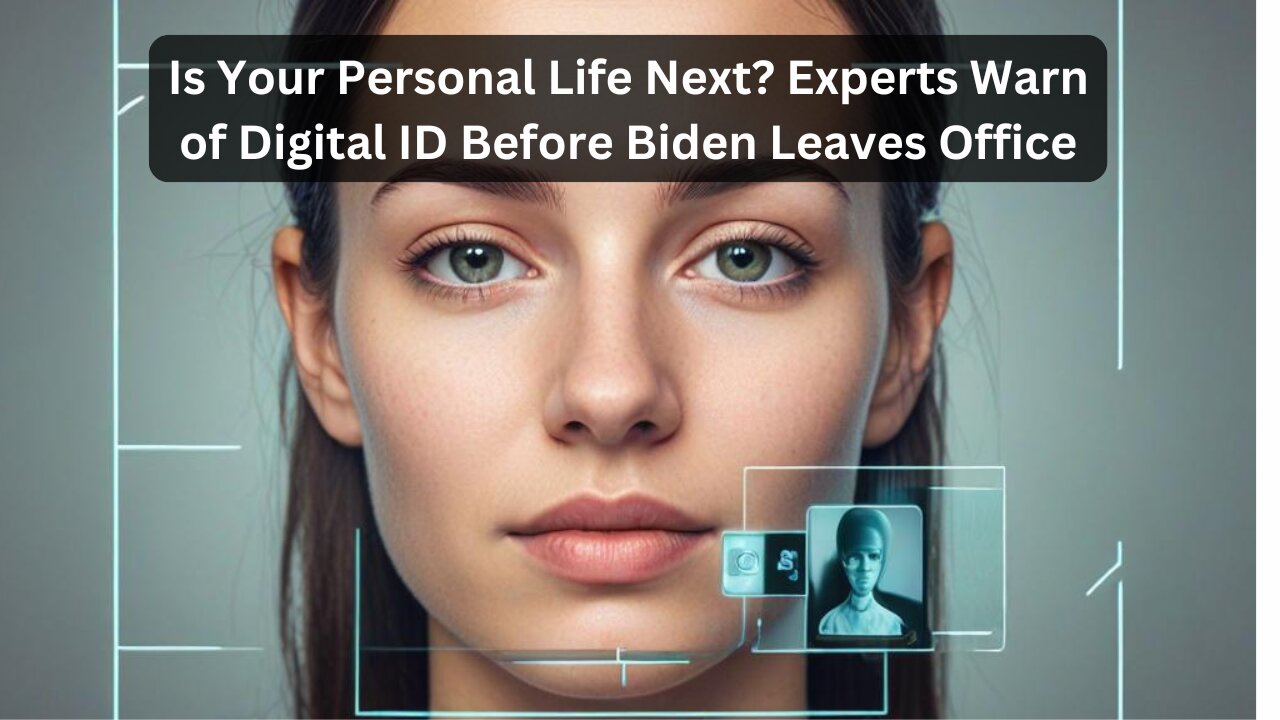Premium Only Content

Digital ID Refusal May Mean No Health Care for Americans
Before his term concludes, President Joe Biden is expected to sign an executive order (EO) to accelerate the implementation of a national digital identification platform overseen by Washington, D.C. This system will require Americans to verify their identity and age to access certain public websites and services, including Obamacare and other government-run healthcare plans, which will only be available to those who opt into the digital ID program.
A nonprofit media organization, NOTUS, obtained a draft of Biden's EO, which states: "It is the policy of the executive branch to strongly encourage the use of digital identity documents."
Although participation in the program is technically "optional," Americans will need to enroll to access healthcare services, renew driver’s licenses, or use public service portals online; otherwise, they will be barred from accessing these government-controlled services.
According to NOTUS, Biden's EO "could fundamentally alter how Americans access government services and interact online." The system will incorporate biometric technologies, such as facial recognition, to "enhance identity verification online," the report says.
Apple and Google are reportedly collaborating with the U.S. government to develop digital ID systems that "allow Americans to carry identity documents on their smartphones and seamlessly submit them to both government and private sector websites for verification."
This development aligns with the vision of the World Economic Forum (WEF), which has previously described digital identity as "the sum total of the growing and evolving mass of information about us, our profiles, and the history of our activities online."
Michael Rectenwald, PhD, author of *The Great Reset and the Struggle for Liberty: Unraveling the Global Agenda*, argues that digital ID is far more concerning than even the WEF admits. He warns, "Digital identity is not just a convenient, digital form of identification. It involves a collection of data that allegedly defines who we are, including our online and offline activities, and serves as more than a means of identification."
As with many technological advancements, the burden will likely fall hardest on the poor, while the wealthy and powerful may find ways to avoid these digital ID requirements. The rest of society could become "digital cattle," managed by the deep state as they navigate the internet.
Alexis Hancock, director of engineering for the Electronic Frontier Foundation, raises concerns about the implications of this initiative. "Digital Identity and the standards that dictate them are still very 'new,' and yet the White House is rushing to implement digital identity for the most vulnerable populations: people on public benefits," she cautions. "Using technologies like facial recognition on this population to access their benefits is something I wouldn't recommend, especially given the documented issues of discrimination in facial recognition."
The risks associated with digital ID go beyond its immediate implementation. Experts warn that future expansions of the system may lead to "function creep," where those controlling the platform could use it for purposes beyond its original intent, such as tracking vaccination status or delving into other aspects of individuals' private lives.
-
 3:33
3:33
Conspiracy Chronicle
5 days agoSoros’ Last Stand? Trump’s Comeback Puts Billionaire’s Agenda at Risk
1151 -
 52:17
52:17
Candace Show Podcast
4 hours agoFight Night! Me VS Marc Lamont Hill On Transgenderism | Candace Ep 104
73K151 -
 1:12
1:12
Mike Tyson
4 hours ago $15.41 earnedIt's a war.
50.4K28 -
 1:04:11
1:04:11
In The Litter Box w/ Jewels & Catturd
23 hours agoProsecute/Fauci | In the Litter Box w/ Jewels & Catturd – Ep. 692 – 11/15/2024
72.9K40 -
 5:17
5:17
BFFs: Dave Portnoy, Josh Richards & Bri Chickenfry
9 days agoSmallest Man
233K24 -
 1:45:03
1:45:03
The Quartering
6 hours agoRFK Big Pharma Meltdown, Alex Jones WIN & Shadow Government To Oppose Trump!
117K40 -
 1:53:23
1:53:23
Tucker Carlson
6 hours agoFasting, Prayer, Meditation, & the Global Persecution of Christians (With Hallow CEO Alex Jones)
161K60 -
 53:03
53:03
Ben Shapiro
6 hours agoEp. 2086 - It’s MAHA TIME: Trump Picks RFK Jr.
123K82 -
 57:03
57:03
Russell Brand
9 hours ago“I Can PROVE Biden Took CORRUPT Money From Ukraine” – Rudy Giuliani on The Biden Crime Family –SF494
198K162 -
 1:59:47
1:59:47
The Charlie Kirk Show
7 hours agoRFK's MAHA Agenda + The Trump Border Effect + Will The Senate Confirm? | Kane, Halperin | 11.15.24
185K53